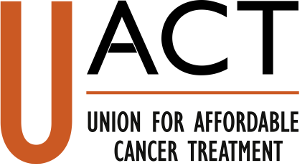UACT Efforts on Access to Xtandi
March 14, 2018. Kayla Gu spoke to the University of California Board of Regents on behalf of UAEM, UACT, and KEI, urging UCLA to drop the patent claim on Xtandi in India.
September 19, 2017. UACT received a letter dated September 7, 2017 from the David Geffen School of Medicine at UCLA sent a letter on behalf of the University of California to UACT’s recent letters on the Xtandi patent in India.
September 13, 2017. Emily Leonard, a US Navy veteran and UC San Diego alumna, spoke on behalf of UACT and UAEM before the University of California Board of Regents, delivering a copy of the letter sent to the Regents on May 24, 2017 asking the University of California to drop its pursuit of a patent on Xtandi in India.
August 9, 2017. UACT sent a letter to Sherry Lansing, the former Paramount CEO and current member of the Board of Regents of the University of California, to stop the Regents’ efforts to obtain a patent on the prostate cancer drug enzalutamide (brand name Xtandi) in India. The Board had yet to reply to UACT’s May 24, 2017 letter.
May 24, 2017. UACT and 56 civil society organizations and academic experts sent a letter calling on Janet Napolitano, the President of the University of California, and the Board of Regents, to “withdraw your efforts to obtain a patent on the prostate cancer drug enzalutamide (brand name Xtandi) in India.”
April 19, 2017. UACT and KEI sent a letter to Secretary Tom Price of the Department of Health and Human Services, and to Secretary Jim Mattis of the Department of Defense, requesting that the Trump Administration reevaluate the January 2016 Xtandi petition that the government use its rights in patents under the Bayh Dole Act (35 U.S.C. §§ 200 et seq.) for the excessively-priced, blockbuster drug enzalutamide (marketed by Astellas Pharma as Xtandi).
January 14, 2016. UACT and KEI submitted a request that the US government exercise its march-in rights on Xtandi, a prostate cancer drug initially developed at UCLA with federal funding. A press release outlining the issue and the request is available here.
March 21, 2016. A group of 11 non-profit organizations submitted a letter to the NIH in support of UACT and KEI’s petition to exercise its march-in rights to lower the price of Xtandi, a drug developed in the US, but which costs US patients more than other high-income countries.
March 28, 2016. In a letter from both side of Congress, twelve Senators and Representatives sent a letter to HHS Secretary Burwell and Director Collins at NIH calling for a hearing to discuss the issues surrounding high priceddrugs such as Xtandi and the need for the NIH to exercise its march-in rights. Signatories to the letter included: Sen. Bernard Sanders (I-VT), Sen. Al Franken (D-MN), Sen. Patrick Leahy (D-VT), Sen. Sheldon Whitehouse (D-RI), Sen. Elizabeth Warren (D-MA), Sen. Amy Klobuchar (D-MN), Rep. Lloyd Doggett (D-TX), Rep. Peter Welch (D-VT), Rep. Elijah Cummings (D-MD), JRep. Jan Schakowsky (D-IL), Rep. Rosa De Lauro (D-CT), and Rep. Mark Pocan (D-WI).
April 26, 2016. The Canadian company Biolyse wrote to US Medicare to offer to manufacture generic version of Xtandi for a fraction of the price of Xtandi.
April 26, 2016. In his keynote address at the Center for American Progress Forum on Rx Drug Pricing, Rep. Lloyd Doggett discusses the Xtandi case and calls for a hearing on the march-in request. Comments on Xtandi begin at 9:30 below:
June 30, 2016. National Institutes of Health responded to UACT and KEI’s request and declined to exercise its rights to lower the price of Xtandi. NIH Director Francis Collins informed UACT and KEI that the NIH would not take action to lower the price of Xtandi, rejecting the petition without addressing the obligation to make the drug available on reasonable terms.
Regarding the rejection by the NIH, Manon Ress of UACT provided this statement,
“From the patient point of view, Dr. Collins chose to help increase the profit of a foreign firm that charges high prices for a life saving drug for many cancer patients, instead of ensuring that U.S. cancer patients can have affordable access to this U.S. government-funded drug. It is wrong and undermines the credibility of the NIH.”
For more discussion of the NIH response to the march-in request and statements by KEI and other groups, please visit: KEI’s blog.
Patient Stories
When discussing the high price of drugs, neither advocates nor the companies should ever forget the heart of the issue, the patients. Upon hearing of our request, UACT and KEI received a letter from a prostate cancer patient who, despite having insurance, is sinking under the weight of his exorbitant co-pays. Read his full letter here.
If you’re interested in contacting a patient to hear their story, please email: tell-me-more@cancerunion.org
